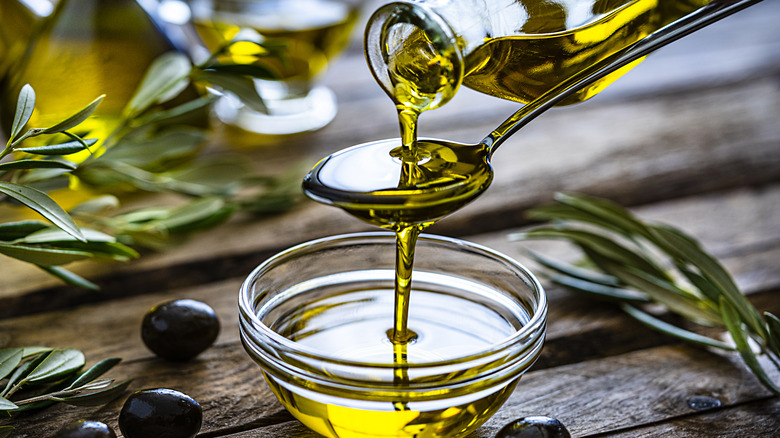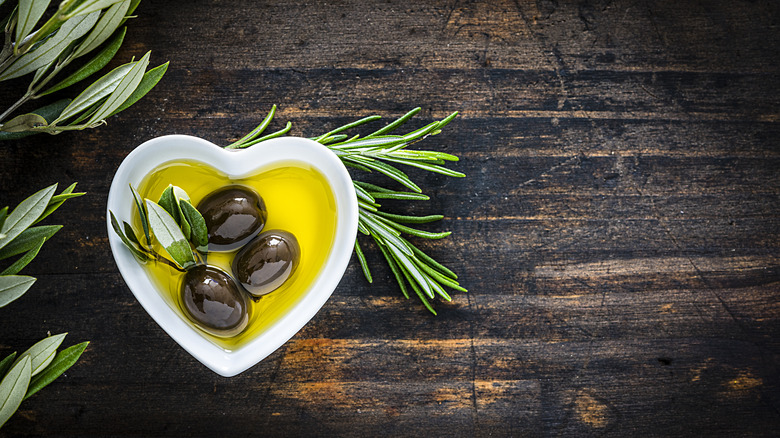The Biggest Olive Oil Myth To Stop Believing
There's a lot of fear-mongering going on in the food world — and the misinformation goes both ways. For example, after the World Health Organization raised debate about a popular artificial sweetener, aspartame, back in July, The Washington Post found that lobby groups, specifically American beverage, which represents both Coca-Cola and PepsiCo, paid dietitians to use their social media to essentially de-legitimize the organization's findings. Something similar has been going on with olive oil — only, rather than paid dietitians, the common misconception that you should not cook with it for fear of its low smoke point is generally spread by shady, conspiracy-pushing, wellness influencers. Or is there a difference between the two? Some might say not.
But their claims must stem from somewhere, right? Katerina Mountanos, certified olive oil sommelier and founder of Mediterranean-rooted olive oil and lifestyle brand Kosterina, told Tasting Table, "The reason people believed this myth is because the quality of extra virgin olive oil in the U.S. has historically been very poor." Inherently, low-quality olive oil equivocates to a low smoke point. By association, extra virgin olive oil — a dietary staple in Mediterranean and Middle Eastern cuisines for thousands of years — came to be considered damaging at high heat, while the heavily processed, modern alternatives like canola oil were deemed as safe. Not only has the stance since been debunked, but, as it turns out, smoke-point isn't even a useful tool in measuring what oils you should cook with in the first place.
Debunking the EVOO lies
Katerina Mountanos informed Tasting Table that, "smoke point is actually not a good measure of whether to cook with an olive oil. We should be considering the level of free radicals emitted when temperature is applied." Fortunately, a group of researchers did the math on that already. Even though the smoke point of olive oil ranges from 350 to 470 degrees Fahrenheit, well within average cooking temperatures, a group of researchers at Australia's Modern Olives Laboratory Services set out to compare 10 different oils' smoke points and how they correlate to their stability and safety under heat. The study, which was published in 2018 in the Acta Scientific Nutritional Health Journal, found that, across the board, olive oil actually performed the best.
As it turns out, the high levels of antioxidants found in olive oil don't just protect your body from oxidation, but, according to Mountanos, they also make it difficult for the chemical bonds in olive oil to break. Hence, the toxic byproducts that many misinformed people claim are released when olive oil is applied to heat are actually safely contained. So, rather than causing inflammation in your body — which is the common argument — olive oil is actually doing the opposite. In fact, olive oil isn't only completely safe to cook with, it's beneficial. Regardless of the type of olive oil you use, Harvard Health says substituting for olive oil can lower the risks of cardiovascular disease, some cancers, and even dementia.

